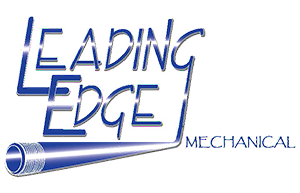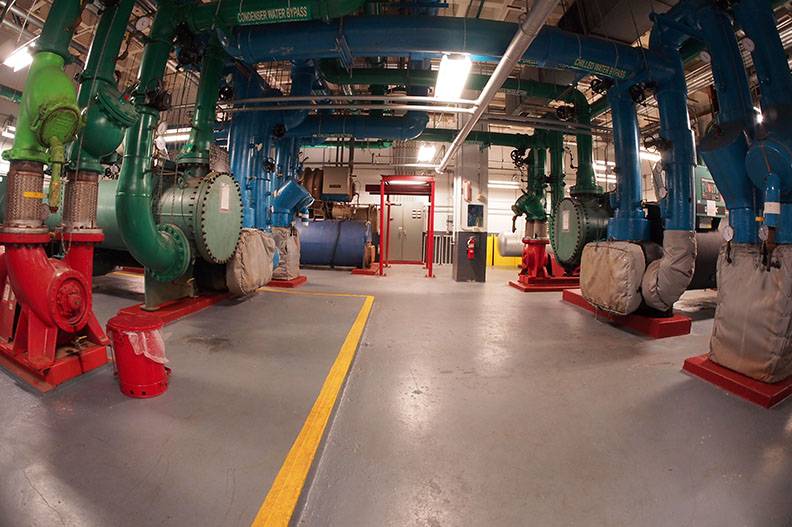Commercial refrigeration systems are the unsung heroes of countless businesses. They ensure perishable goods remain usable and safe for consumption, supporting industries from hospitality to pharmaceuticals. Like any complex piece of machinery, though, these systems can encounter technical issues that can disrupt operations.
As seasoned refrigeration experts, we at Leading Edge Mechanical Inc are here to explore the most prevalent commercial refrigeration problems and the most suitable solutions. Continue reading to learn how refrigerators fall into disrepair and how professionals can restore them to their former glory.
Commercial Refrigerators: The Optimal Cold Storage Solution
Unlike household refrigerators, commercial refrigeration units are designed to handle larger volumes and cater to diverse industries via a wide range of specialized features. For instance, walk-in coolers and freezers provide expansive storage space, making them ideal for industries with substantial inventory requirements. Display cases showcase products in retail settings, while reach-in refrigerators and freezers offer convenient access for busy kitchens. Then, there are specialized units like blast chillers and medical-grade refrigerators that address the unique demands of the healthcare and pharmaceutical industries.
What sets commercial refrigeration apart from other cold storage solutions is its scalability, precision, and adherence to industry-specific standards. Unlike domestic refrigerators, commercial units are engineered for intensive use, maintaining consistent temperatures even in high-demand environments. The complex nature of these refrigeration systems and the purposes they serve mean that even the most minor problems require immediate attention.
Seeing Frequent Temperature Fluctuations?
One of the most common issues in commercial refrigeration is temperature instability. Fluctuations can compromise the quality and safety of stored products. To address this, we begin by checking the thermostat calibration. If it’s accurate, we’ll inspect the door seals for damage. Faulty seals allow warm air infiltration, which often leads to temperature variations.
Cleaning the fridge's condenser coils is one of the most failsafe solutions to regulating temperatures. Clean coils ensure proper airflow, which allows for consistent temperatures.
Experiencing High Energy Consumption?
Commercial refrigeration systems use anywhere from 17,000 kWh to 38,000 kWh of energy, depending on the size and purpose of the system. If you’re seeing higher-than-usual energy bills, it might be a sign that there is a problem with your unit. Excessive energy consumption impacts operational costs and almost always indicates underlying issues.
Is your refrigerator old? Sometimes, an old and out-of-date refrigerator just isn’t going to cut it. Instead, older refrigeration systems usually leave companies with utility bills that are too high—even by today’s standards. If you have an older unit that keeps giving you trouble, it might be worth considering an upgrade.
Are You Hearing Odd Noises?
Unusual sounds emanating from the refrigeration unit can signal impending problems. Rattling, hissing, or banging sounds may indicate issues with the compressor, condenser, or evaporator.
Our advice? Invest in regular inspections for the prompt identification of faulty components. Regular inspections ensure the resolution of minor issues before major problems arise. During the inspection, your contractor will be able to identify which moving parts need lubrication. Lubricating moving parts and addressing issues will ensure your system remains functional and quiet.
Witnessing Leaking Refrigerant Around Your Cooler?
When you see a leak, you know it’s time to enlist the expertise of professionals. Refrigerant leaks compromise system efficiency, leading to increased energy consumption and potential environmental hazards.
Employ a professional technician to identify and repair leaks promptly. Another tip? Consider adopting environmentally friendly refrigerants. A change in refrigerant fluid can enhance efficiency and reduce your carbon footprint.
Evaporator Coils Freezing?
Frozen evaporator coils obstruct the heat exchange process, hindering the refrigeration cycle. How do issues like these arise? This issue often stems from inadequate airflow or a malfunctioning thermostat. Ensure proper ventilation by maintaining clear pathways around the unit. If you’re unsure how to foster adequate airflow throughout the system, pick up the phone and call a professional.
Overheating Fridge? Sounds Like Compressor Issues
A malfunctioning compressor can disrupt the entire refrigeration system. The fridge can overheat, strange noises can appear out of nowhere, and one day, the refrigerator might even fail to start. Don’t hesitate to reach out to your local commercial refrigeration company when you detect higher-than-usual temperatures.
Professional diagnosis involves a comprehensive assessment of the compressor, electrical components, and overall system health. Technicians use advanced tools to identify specific problems and implement targeted solutions, ensuring the longevity and reliability of the compressor.
Experiencing Condenser Coil Problems?
Dirty or damaged condenser coils impede heat dissipation, leading to increased energy consumption and potential compressor failure. When you call technicians to address these manners, they might install protective measures such as coil guards to prevent debris accumulation.
Mold Growth? Address the Condensation Issues
Excessive condensation inside the refrigeration unit can lead to unwanted mold growth. In a commercial environment, the last thing you or your clients need is contaminated perishables or other frozen materials. When you fear condensation is at risk of compromising the refrigeration system, check door seals for damage and replace them if necessary.
Professional contractors might install moisture-absorbing materials, such as silica gel packs, to help control humidity levels and mitigate condensation issues throughout the system. Are you setting your fridge at the right temperature? Don’t hesitate to ask a professional. An expert will be sure to let you know!
Beware of Electrical Problems
Have there been reports of circuit breaker issues in your building? Do the lights in your facility flicker off and on when the refrigerator is cycling? Is the refrigerator cycling more than usual? These are all signs that the refrigerator is experiencing electrical problems.
Electrical malfunctions pose serious risks to both the refrigeration system and the safety of stored products. Call a professional to inspect wiring, outlets, and switches for signs of wear or damage.
Speak with Commercial Refrigeration Experts Today
If you’re experiencing any of the above issues with your vital commercial refrigeration equipment, it might be time to consult commercial refrigeration experts. Contact (218) 237-5125 at your convenience for more answers to your questions, prompt service, and swift solutions to any refrigeration issues.


